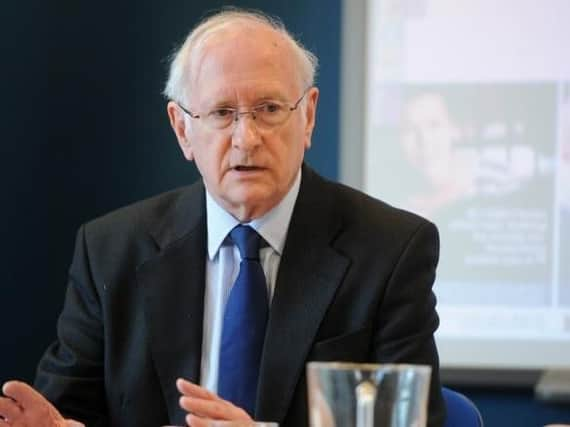Policing failures '˜a canary in the mine for nation's public services'


Inspectors from a Government watchdog warned yesterday that victims are being let down, criminal cases shelved and suspects left untracked as police fail to carry out basic functions.
The findings on police effectiveness prompted Her Majesty’s Inspectorate of Constabulary to raise the alarm over the “potentially perilous” state of British policing. Dr Alan Billings, whose South Yorkshire force was judged to require improvement, admitted his was one of the forces which suffered as a result of “poor strategic leadership”.
Advertisement
Hide AdAdvertisement
Hide AdCommenting on the report, he told BBC Radio 4’s Today programme: “It’s very serious. I don’t think I have ever read a report from the Inspectorate that was quite as sobering as this.
“My feeling is what you are seeing here is what’s reflected across the public sector.
“Because the police has become the default service for the welfare state, what you are seeing here is a canary in the mine as far as the public sector altogether is concerned.”
South Yorkshire Police, which has been beset by a series of recent controversies and last year saw its Chief Constable, David Crompton, forced to retire over comments made after the Hillsborough inquests, was among 13 forces given the second worst rating by HMIC.
Advertisement
Hide AdAdvertisement
Hide AdIt was said to have made a “step backwards” because of changes to neighbourhood policing which “weakened its ability to be effective in tackling threats”.
The changes made in 2015 meant that teams of local beat bobbies were merged with response units in what became known as ‘local policing teams’.
But, HMIC said, officers were regularly being called away to cover other duties, meaning they did not have time to patrol locally, engage with residents or solve problems in communities around South Yorkshire.
Dr Billings said he ‘pinched’ his current Chief Constable, Stephen Watson, from Durham Police, the country’s best performing force, and told him he needed to improve neighbourhood policing.
Advertisement
Hide AdAdvertisement
Hide AdHe said: “I think it is inevitable that with any individual force, my own force is a good example of this, we might have had poor strategic leadership in the past.
“We now have a new Chief Constable who has got to address that, so there maybe those sorts of issues in a force. But we have got to accept the fact that more of us are trying to do more and better with less.
“Year on year we are receiving less funds, a police force can’t run a deficit so we have got to make the books balance. That leads sometimes to poor decisions where financial decisions are affecting policing.”
He added: “There is no doubt that neighbourhood policing has suffered in many areas, that is true in my own area. If people are really pushed and pressured to answer 999 calls and deal with incidents, etc etc, they are going to pull officers out of neighbourhood areas. Neighbourhood policing is one of the key areas where you can see the pressure policing is under.”
Advertisement
Hide AdAdvertisement
Hide AdIn its report, where two Yorkshire forces were among the 26 rated ‘good’ and two as ‘requires improvement’, HMIC issued an unprecedented warning that a shortage of detectives and investigators amounted to a “national crisis”.
And it was revealed suspected murderers and rapists were among thousands wanted by forces around the country.